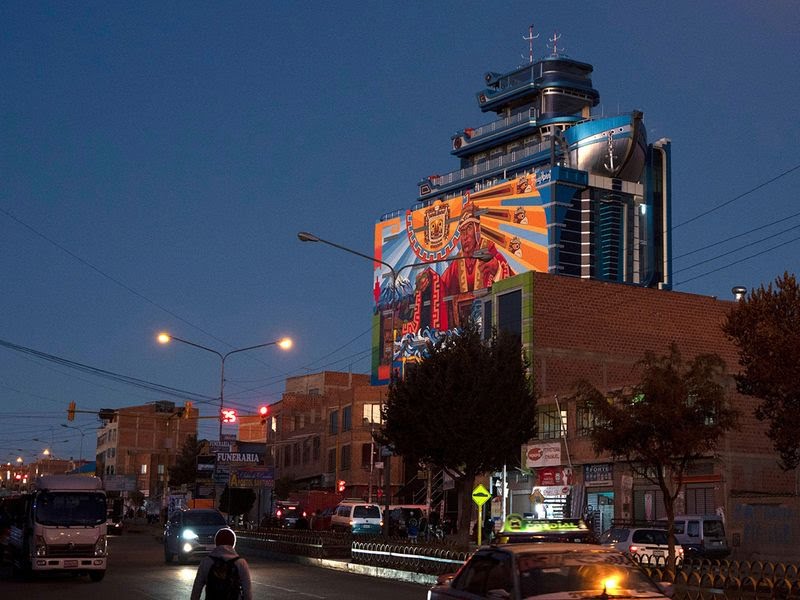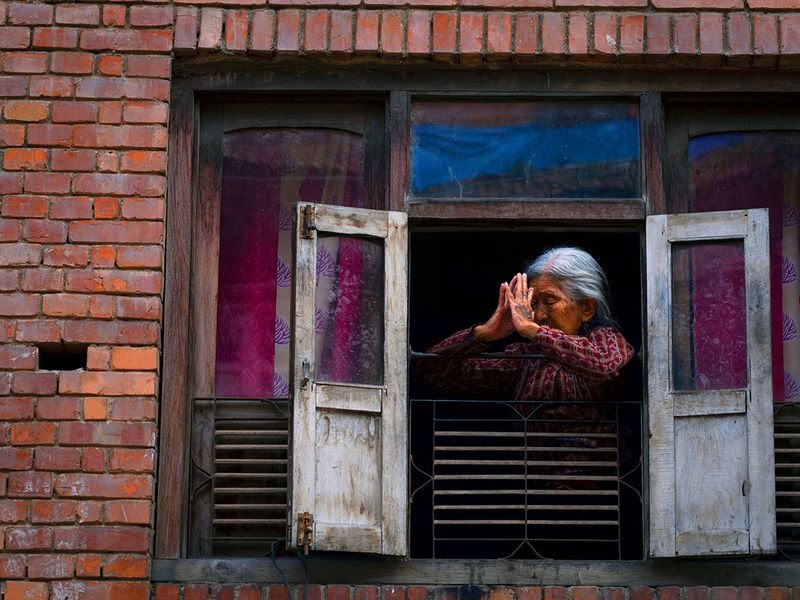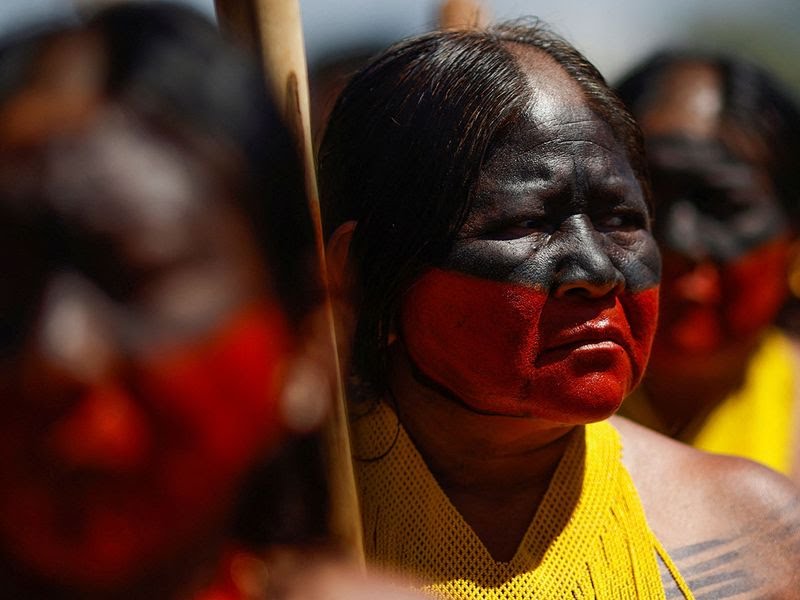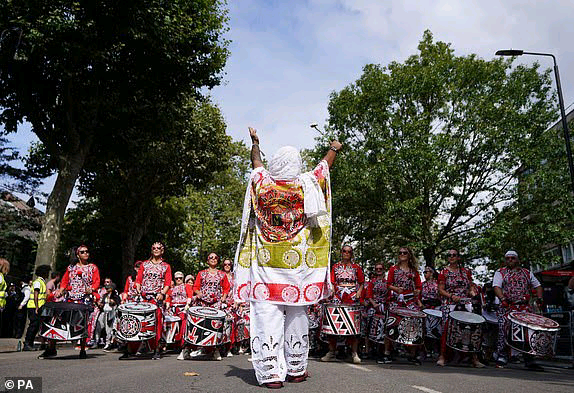

Image Credit: AFP


Image Credit: AFP



Image Credit: AP

Image Credit: AFP












Despite geopolitical tensions and supply chain disruptions, countries continue to improve the trading environment by simplifying and digitalizing trade processes.
According to the UN’s fifth global survey on digital and sustainable trade facilitation, an average of 68.6% — up by 6% since 2021 – of the general and digital trade facilitation measures outlined in the landmark Trade Facilitation Agreement of the World Trade Organization (WTO) have been implemented by countries worldwide.
The survey analysed trade facilitation progress across 161 countries worldwide, as outlined in the “Digital and sustainable trade facilitation: Global report 2023” launched on 15 September.
It covers some 60 trade facilitation measures grouped under 11 categories.
These include transparency, formalities, institutional arrangement and cooperation, transit facilitation, cross-border paperless trade, trade facilitation for small and medium-sized enterprises (SMEs), agricultural trade facilitation, women in trade facilitation, trade finance and trade facilitation in times of crisis.
The biennial survey used to be conducted jointly by the UN’s five regional economic commissions.
UNCTAD, which contributed to past surveys, is now part of the core team of organizations conducting the survey.
Leveraging its network of national trade facilitation committees (NTFCs), UNCTAD has provided data from an additional 24 developing nations, including four least developed countries, for the 2023 survey.
“This new partnership significantly broadens the scope of the survey and strengthens its credibility as a comprehensive analysis of digital and sustainable trade facilitation measures,” said Shamika N. Sirimanne, UNCTAD’s director of technology and logistics.
How countries and categories fare
The survey shows that developed economies have implemented the most trade facilitation measures, leading the global pack with an overall rate of 85.3%.
In comparison, 54 out of 90, or 60% of developing countries with a GDP per capita below $10,000 have achieved implementation rates of over 50%.
The average implementation rates for least developed countries, landlocked developing countries and small island developing states are similar, ranging between 53% and 61% — significantly below the global average.
This is in part due to persisting challenges related to weaker digital infrastructure and a lack of adequate legal framework to support cross-border data and documents exchanges.
The results reaffirm the need to step up technical assistance and capacity-building efforts to help these vulnerable economies bridge the existing implementation gap in trade facilitation.
On the different categories of measures, countries scored highest in efforts to enhance transparency, with an implementation rate of nearly 80%.
With digitalization on the rise, paperless trade has improved the most over the past two years, averaging globally at 68.8%.
Despite the low adoption of cross-border paperless trade measures, pegged at a global average of 45.43%, the survey highlights substantial improvements in areas such as e-transaction laws and electronic exchange of sanitary and phytosanitary certificates.
Need to shore up support for vulnerable groups
The survey also makes a case for more sustainable trade facilitation measures benefiting SMEs, agricultural sector entities and women traders.
Globally, SMEs on average have implemented 43.33% of trade facilitation measures. The average rate for agricultural entities is about 64%.
Meanwhile, reducing gender inequalities remains a challenge, as the global average implementation rate continues to hover below 40% for measures related to women in trade facilitation.
UNCTAD has called for greater SME participation in NTFCs, as well as access to one-stop, electronic “single window” platforms for trade-related information and procedures.
It also urged greater involvement of women in trade facilitation policymaking, for instance, by introducing gender focal points in national trade ministries, increasing women’s representation in NTFCs and creating programmes to support female traders.
“By placing an emphasis on inclusive policies, embracing digitalization and fostering stronger international collaboration, we can establish a trade landscape that benefits everyone and leaves no one behind,” Ms. Sirimanne concluded.
When it comes to understanding and fostering women’s economic empowerment, measuring the gender dimension of trade has emerged as an increasingly important endeavour.
But for a long time, the lack of data on gender equality in international trade has posed a bottleneck, hampering countries’ abilities to apply the gender lens needed to design policies that equally empower women and men.
To bridge this gap, UNCTAD in 2018 began developing a framework to help countries link existing national statistical data to assess gender in trade. The process, called “microdata linking”, offers a cost-effective and sustainable alternative to creating new one-off surveys.
The framework has been tested by half a dozen countries, and the methodology is now outlined in UNCTAD’s newly published guidelines for measurement of gender-in-trade statistics, aimed at helping national statistical offices enhance data to inform trade policy development.
“Today’s increasingly complex data needs require interoperable data systems to help derive new insights from the data we have,” said Anu Peltola, who leads statistics work at UNCTAD.
“This is especially important in developing countries where resources are scarce. We cannot afford to leave data unused,” Ms. Peltola added.
Pilots lay bare persisting gender gap in trade
The guidelines were developed as part of a joint project on data and statistics for more gender-responsive trade policies in Africa, the Caucasus, and Central Asia, in which UNCTAD collaborated with the UN’s regional economic commissions for Africa and Europe.
Cameroon, Georgia, Kazakhstan, Kenya, Senegal and Zimbabwe piloted UNCTAD’s microdata linking methodology and compiled a set of new experimental, sex-disaggregated indicators measuring employment, wages and business ownership.
The results in all six pilot countries reaffirmed gender gaps in favor of men but also revealed many differences across countries.
Georgia and Kenya presented their findings and lessons learned on 30 August at a session of the 9th UN Global Forum on Gender Statistics.
Georgia: Data-driven policymaking to bolster women traders
In Georgia, the results of microdata linking showed fewer women employed in trading enterprises compared to men, with women earning 30% to 35% less.
Meanwhile, the ownership analysis indicated that the number of men owning businesses was about nine times higher than women for businesses that import and export, five times higher for those who only import, and three times more for exporters.
“Gender aspects of trade statistics become very relevant to addressing issues related to welfare and equality. There’s high interest from state institutions, international partners and non-governmental organizations,” said Gogita Todradze, executive director of Georgia’s National Statistics Office.
Drawing on these insights, Georgia plans to include gender-in-trade data in the statistics it regularly produces. The aim is to help government officials design policies that encourage women entrepreneurship, as well as increase job opportunities and wages for women in trade.
Kenya: Government-wide cooperation is key to leveraging existing data
Kenya, another pilot country, credited microdata linking for saving resources, while underscoring the need for cooperation within the government. The statistical data needed for this methodology may come from several different agencies.
For example, Kenya’s National Bureau of Statistics (KNBS) does not have access to trade microdata due to the country’s confidentiality policies.
Therefore, cooperation with the Kenya Revenue Authority (KRA) was necessary to link data from the authority’s customs database to its administrative tax data.
Once the microdata linking was complete, the KRA – in keeping with data privacy protocols – anonymized the dataset before handing it over to KNBS for analysis.
Similar to the experience in Georgia, the pilot in Kenya provided insights into gender disparities in trade.
It found that across Kenyan trading companies, men employees accounted for about 65% of the total employees. And men on average were paid 21% to 27% more than women.
Additionally, men accounted for 72% of the total number of owners of trading companies.
“These indicators can inform gender-responsive policymaking by identifying challenges and opportunities to promote gender-inclusive value chains,” said Cynthia Chelimo, who works for Kenya’s State Department for Trade.
Female street vendors, locally known as “zungueiras”, are a defining characteristic in many Angolan cities.
These informal traders – often carrying a large plastic bowl of goods on their heads, and a baby strapped to their backs – represent the resilience and perseverance of Angolans, who have navigated economic and political uncertainties since the country’s independence in 1975.
Drawing on this reality comes “Zungueira Run”, one of Angola’s top video games with more than 50,000 downloads so far.
Created by a group of young Angolan developers, the game’s success offers a glimpse of a more innovative economic future, says a new UNCTAD study released on 13 September, examining the country’s cultural and creative industries (CCIs).
The study is a key component of the EU-UNCTAD Joint Programme for Angola: Train for Trade II funded by the European Union. It helps Angola diversify its economy and exports towards green and creative sectors and link to regional and global value chains through multisectoral assistance.
The study is also part of UNCTAD’s ongoing support to developing countries to map their creative economies and identify areas for improvement.
“A greater policy focus on innovation and creativity is critical for economic diversification, and hence for sustainable and inclusive growth in developing countries,” says Miho Shirotori, acting director of UNCTAD’s division of international trade and commodities.
Economic diversification gains fresh impetus in Angola
Angola boasts a rich cultural history of film, theatre, publishing and literature.
It also enjoys a bedrock of creative talent, start-ups and emerging innovation ecosystems hungry for opportunity in the CCIs – the most prominent areas being advertising, architecture and computer programming, according to the UNCTAD study.
But at the same time, Angola overly depends on crude oil, which represents 93% of its exports. Low productivity and meagre opportunities in other economic sectors have left a third of the population below the poverty line.
As Angola strives to exit the UN category of least developed countries, there’s a renewed sense of urgency to diversify its economy.
And a key route to this goal is leveraging the creative and cultural industries to help mitigate economic fluctuations attached to oil prices, employ more people in the formal economy, while tackling several structural constraints.
“We aim to promote vibrant CCIs in Angola, provide greater opportunities for entrepreneurs and creators, build on the rich and diverse cultural heritage of our country and strengthen trade relationships with more countries,” says Filipe Silva de Pina Zau, minister of culture and tourism in Angola.
Traditionally, China, the European Union and the United States are Angola’s main trading partners. With the creative economy on the rise, the country hopes to boost economic ties with other economies.
Gaps to bridge
Take gaming again for example. The UNCTAD study shows that on average, between 50 and 60 video games are developed in Angola each year.
But few are registered with Angola’s Institute of Intellectual Property, making it even harder to enforce copyrights and combat a culture of piracy.
Other concerns are related to high production costs, a shortage of skills, internet access quality and affordability, as well as hurdles in making and receiving international digital payments.
Additionally, the study flags the absence of a framework to effectively define and measure these industries, resulting in scattered and incomparable data. Such lack of data on job creation, GDP contribution and gross value-added limits the government’s ability to design effective policies and interventions.
To address this, the study emphasizes the need for improved data collection, measurement, and statistics to unlock the promise of the CCIs.
Ways to unleash the full potential
The study presents a roadmap for Angola to harness the CCIs’ economic power primarily through comprehensive policies, improved data collection and increased investment.
Noting that Angola’s cultural policy is currently fragmented across different ministries, UNCTAD calls for greater collaboration across the government – anchored by the culture and tourism ministry – and more inclusive policymaking.
“Angola needs a more cohesive and coordinated governance structure and classification system for the CCIs,” says Marisa Henderson, head of UNCTAD’s creative economy programme and lead author of the study.
“State intervention along with participation of the private sector and civil society will help Angola unlock the economic potential of the sector.”
Pointing to the CCIs’ struggle to access even microfinance, UNCTAD encourages efforts to offer creative workers access to loans while helping them build creditworthiness.
In addition to traditional private financing, other forms of support, such as tax incentives, social schemes and public funding are essential.
UNCTAD also calls for the empowerment of creative workers and artists through infrastructure development, training and education, as well as promotional campaigns to foster “a strong, saleable brand” nationally and globally for Angola’s cultural and creative industries.
Holistic approach
The EU-UNCTAD joint programme supports Angola to diversify its economy and exports by building productive capacities, operating across seven different economic policy areas simultaneously.
The programme was selected in 2022 as a global success story for Sustainable Development Goals (SDG) good practices implementation.
UNCTAD’s holistic approach to development, first piloted in Angola, will feature as one of the 12 High Impact Initiatives on 17 September as part of the UN’s SDG Action Weekend, ahead of the SDG Summit and the high-level segment of the 78th session of the UN General Assembly.
UNCTAD’s initiative dubbed “Transforming4Trade” will provide political guidance for holistic, multisectoral and multi-year programmes to foster productive capacities and structural economic transformation.
Implemented as part of UNCTAD’s Debt Management and Financial Analysis System (DMFAS) programme, a recently concluded UNCTAD project has helped Mauritania improve its public debt management.
The two-year project has helped improve the availability of the sub-Saharan African nation’s debt data.
It lead to the publication of the country’s debt statistics bulletin in line with international standards. The bulletin now provides more comprehensive information on Mauritania’s public debt in a timely manner, enhancing transparency to inform policymaking and debt restructuring negotiations.
While public debt can be vital for development, UN analysis highlights how it can become a heavy burden and divert government resources from essential services, such as education and health.
Idrissa Niang, director of the external debt department in the country’s finance ministry, expressed satisfaction with UNCTAD’s support, while urging global donors to continue supporting developing countries in attaining long-term debt sustainability.
Debt relief efforts have helped
In the early 2000s, Mauritania received debt relief under the Heavily Indebted Poor Countries (HIPCs) initiative and Multilateral Debt Relief Initiative.
The country benefited from the G20’s Debt Service Suspension Initiative in the context of the COVID-19 pandemic and signed a suspension agreement under this framework in June 2020.
It also conducted bilateral debt reorganization negotiations with some creditors, which helped significantly reduce its debt burden in 2021.
“With the HIPCs and debt restructuring processes, our debt structure has changed. Bilateral negotiations were successful for Mauritania,” Mr. Niang said.
Risk of debt distress downgraded to ‘moderate’
Mauritania’s ministry of finance has been using UNCTAD’s DMFAS software since 1996 to manage the country’s external debt, which is mainly concessional but highly exposed to exchange rate risks, since 85% of Mauritania’s public debt is denominated in foreign currencies.
If the country’s currency Ouguiya devalues, debt payments in foreign currency become more expensive, leaving less money for the government to invest in development spending – such as investing in roads, hospitals and education.
The main indicator of external debt sustainability – total external debt to export ratio – shows that the country’s capacity to pay its external debt in the medium and long- term has improved since 2015.
According to the World Bank, Mauritania’s debt to GDP ratio remained stable in 2022 at around 49%.
In January 2023, a joint assessment by the International Monetary Fund and the World Bank suggested that the risk of overall and external public debt distress is moderate for Mauritania.
This is down from the “high” rating in previous debt sustainability assessments, thanks to recent debt restructuring and continued improvements in the country’s fiscal risk management.
Besides Mauritania, UNCTAD’s DMFAS software is currently used in over 80 institutions across 61 countries.
Piloting more effective debt management practices
To continue strengthening Mauritania’s capacity and knowledge on debt data quality and debt sustainability analysis, UNCTAD and the UN Economic and Social Commission for Western Asia (ESCWA) held a national workshop in the country’s capital Nouakchott on 19 and 20 June.
The workshop was organized as part of UNCTAD and ESCWA’s joint project “Developing debt optimization strategies to enhance fiscal space”, of which Mauritania is a pilot country.
The project supports countries in the region to adopt effective debt optimization practices, including improving debt transparency and reporting.

Not everyone can turn the theft of a cell phone into a good experience. But then again, not everyone is Richard Odjrado. When this young Beninese entrepreneur’s phone was stolen – for a second time – he transformed calamity into ingenuity.
Mr. Odjrado, 34, has created a revolutionary anti-theft tracker for smartphones that alerts the owner if the phone is moved without their permission, enabling them to locate it if it’s lost or stolen. The tracker is also operated from a smart watch he’s designed.
He spent nearly two years researching and developing his anti-theft solution before launching his company AS World Tech, which also makes glasses and laptops.
Boom for registrations
Between 2019 and 2022 the number of young people opening new businesses in Benin skyrocketed, more than tripling from 7,416 registrations to 23,312.
“That’s growth of 212%,” says Laurent Gangbes, chief executive of the Agency for the Promotion of Investments and Exports (APIEx) in Benin, who’s behind an initiative to digitize government services and make it easier to do business in the West African nation.
The boom is powered by low-code software developed by UNCTAD, and “demonstrates a national demand for digital services that support entrepreneurial ambitions,” Mr. Gangbes added.
| 2019 | 2022 | 2019–2022 | |
|---|---|---|---|
| Total new businesses | 27 379 | 56 579 | +107% |
| Founded by women | 8 936 | 18 764 | +110% |
| Founded by age 18–30 | 7 460 | 23 312 | +212% |
Source: UNCTAD
UNCTAD developed the MonEntreprise.bj platform in 2020, using its ground-breaking software custom-built to help businesses launch efficiently online.
Benin is committed to establishing a digital business environment that delivers innovative services to the private sector and enables businesses to thrive. “Their story is one of an enabling environment realized,” says Frank Grozel, UNCTAD’s head of business facilitation.
The UNCTAD-Benin business facilitation project is supported by the Netherlands.
The software has been deployed in 10 other developing countries and counting, lowering barriers to entry into the business world in Argentina, Bhutan, Burundi, Cameroon, Cuba, El Salvador, Guatemala, Iraq, Lesotho and Mali.
Digital-enabled growth
Mr. Odjrado’s company is now thriving because of the digital-first approach taken by Benin’s government. The MonEntreprise.bj platform saved him a lot of time and hassle, he said.
“I didn’t have to run around to different government offices to get the necessary documents. I was able to do everything online, from registering my business to obtaining my tax ID number.”
He registered AS World Tech in a few minutes in June 2021. Less than two years later, it exports to 56 countries including France and China. The company is about to build a new factory of 16,000 square metres in Benin that will employ 218 people.
“If you stay in the informal sector you are no one. You have no legitimacy and aren’t known. You can’t have any serious business relationships. So you need to formalize,” he advised.
More women than ever are using the MonEnterprise platform to open companies.
The number of women-founded companies doubled between 2019 (8,936) and 2022 (18,764), with women like Caludia Togbe taking full advantage of just how easy it is to do so.
“I didn’t believe the online business registration system would work as promised but it did,” Ms. Togbe said. “It’s every entrepreneur’s dream to be able to create a company from home. In other countries in the sub-region it takes three weeks to do the same thing.”
Women represented 33% of the 56,579 new businesses opened in Benin in 2022.
For Ms. Togbe, the formalization of her business helped change perceptions. When she started looking for work early in her career, she was told by would-be employers that she was too young for the job.
But she bypassed their opinions to launch Origine Terre, a natural product cosmetics company. “In only three to four clicks,” she added.
“I couldn’t wait for someone to hire me, so I decided to create my own job, and hire myself,” she said. “I always knew I wanted to be my own boss. But it wasn’t until I hit rock bottom that I decided to take the leap and start my own business.”
She began by making natural cosmetic products in her kitchen and selling them at local markets. As her business grew, she moved into a small workshop and began to hire employees.
Now Origine Terre is a popular phenomenon in Benin. Opened in 2020 on MonEnterprise, it has expanded to include skincare, haircare and body care products. Her products are sold in stores throughout France and online.
Origine Terre exports to Burkina Faso, Cote d’Ivoire and Togo, and imports from China, Cote d’Ivoire and Ghana. Across Benin, its products are stocked at local supermarkets.
The UN Conference on Trade and Development (UNCTAD) will hold the World Investment Forum 2023 to rally investments for climate action, clean energy, health care, food security and other development needs.
Heads of state, more than 50 government ministers, over 150 CEOs of leading companies and stock exchanges, and thousands of investment stakeholders – from sovereign wealth fund managers and investment treaty negotiators to heads of international organizations – will participate in more than 130 events co-organized with over 80 partners. See the full programme.
“As the world faces multiple crises, we urgently need investment stakeholders worldwide to ignite action, unlock more funds and channel them to vital sectors key to reducing the effects of these crises,” UNCTAD Secretary-General Rebeca Grynspan said.
According to UNCTAD’s World Investment Report 2023, overlapping crises such as the war in Ukraine, high food and energy prices and debt pressures led to a 12% decline in global foreign direct investment in 2022.
Opportunity to tackle interlocking issues
Dr. Thani Al Zeyoudi, minister of state for foreign trade in the United Arab Emirates (UAE), said UNCTAD can play a major role in addressing and ultimately mitigating these interlocking issues.
“It is an undeniably challenging moment for the global economy, and for the economies of the Global South in particular. As we confront the triple shocks of inflation, geopolitical uncertainty and climate change, balancing prosperity and sustainability requires a combination of innovation, investment and, perhaps above all, will,” Dr. Al Zeyoudi said.
He added that the forum provides an opportune moment for the global investment community, supported by policymakers and institutions, to mobilize and direct capital to projects that can fast-track environmentally responsible and socially beneficial development.
“As a consistent advocate for both equitable, inclusive growth and trade’s role in driving it, the UAE is eager to contribute to a solutions-oriented forum that can begin to write a positive new chapter for the world,” he said.
Ahmed Jasim Al Zaabi, chairman of the Abu Dhabi Department of Economic Development and Abu Dhabi Global Market (ADGM), said: “Abu Dhabi is taking a leading role in defining the new architecture for climate finance, through concrete actions including its recently released comprehensive regulatory framework for sustainable finance that rivals global standards.”
By setting stringent requirements for sustainability-focused products and services, he added, the international financial centre of Abu Dhabi (ADGM) is putting in place a progressive framework that drives capital towards projects, advancing climate transition for a net-zero future.
Mr. Al Zaabi added: “We look forward to welcoming global leaders, entrepreneurs, investors, and government representatives to the ‘Capital of Capital’, and we are confident that our collaboration will result in tangible outcomes that will benefit the global economy by supporting inclusive and advanced flow of trade and creating new opportunities for business owners and investors.”
$2.2 trillion annual gap for energy transition in developing countries
On climate action, this eighth edition of the World Investment Forum will highlight investment solutions that will feed into negotiations at the 28th UN climate change conference (COP28) scheduled for late November and December in Dubai.
Forum participants will agree on actions to boost clean energy investments in developing countries, which face an investment gap of $2.2 trillion annually for the transition to low-carbon energy, according to the World Investment Report 2023.
Financing a low-carbon future
The forum will also address how the sustainable finance market can help build a low-carbon future and increase investment in sustainable energy.
The value of the global sustainable finance market (bonds, funds and voluntary carbon markets) reached $5.8 trillion in 2022, despite the turbulent economic environment, including high inflation, rising interest rates, poor market returns and the looming risk of a recession that all affected the financial markets.
$450 billion needed annually for health and food
The forum will also explore opportunities to boost investment in health care. Developing countries alone need at least $100 billion in additional investment in health-care facilities and infrastructure each year.
They will also examine how to increase public and private sector investment in agrifood systems to reduce food insecurity, foster rural employment, particularly for women and youth, and increase incomes.
Countries need up to $350 billion annually for the next decade to transform agrifood systems, which can also help tackle climate change and biodiversity loss.
From commitments to actions
The forum will also offer countries a platform to translate their commitments on investment facilitation into tangible actions and reforms.
James Zhan, the UNCTAD director who leads the World Investment Forum, said: “This is a golden opportunity for developing countries to examine how they can bridge investment gaps through more efficient investment promotion and facilitation.”
Countries will explore how to make their investment facilitation services inclusive and address the specific needs of sectors and investor groups with a high development impact, such as social entrepreneurs and women, youth and rural investors.
In late July, Niger’s democratically elected president, Mohamed Bazoum was ousted in a military coup.
Abdourahamane Tiani, a general, was later declared as the country’s new head of state.
In response to the putsch in the country, ECOWAS, led by President Bola Tinubu, had threatened to deploy force, besides economic and financial sanctions, to reinstate the ousted leader, Mohamed Bazoum.
It was learnt that there are two delegations from the country seeking to participate at the General Debate.
The “General Debate” is the formal name for the speeches given at the General Assembly by Presidents, Prime Ministers and diplomats from hundreds of United Nations member states.
Niger is however scheduled to speak on Thursday, September 21.
The Under-Secretary-General for Global Communications, Melissa Fleming while speaking to journalists clarified that the onus lies on the credentials committee to work on the recognition.
She said: “We believe that military coups are not the way to change power, but through democratic transitions which are free and fair elections.
“The UN is really making as much effort as it can, to try and push for democracy, and not to acknowledge takeovers of power that are not legitimate.
“For example. Niger Republic is trying to send two different delegations to the UN next week. Everybody wants to keep the UN to recognize them.
“There’s no delegation from the Taliban. If a country is not recognized by the UN, then you know, you’re going to have a hard time; also getting international aid is not going to be easy. We provide support to governments in transition and try to bolster democracies.
“There is a Credentials Committee which is made up of member states that is supposed to be meeting to make a decision on who can be represented.
“We have the same situation with Myanmar. The Credentials Committee hasn’t met yet, which is also as a result of the geopolitical plan tensions. So we’ll have to see in the coming days what the outcome will be. But so far, there’s no one recognized.”
The streets of West London were awash with colour as dancers made the most of the fine weather for the Children’s Day Parade.

The Notting Hill event, held over the August Bank Holiday is Europe’s largest street carnival and celebrates Caribbean culture and history.



One group of dancers wore Phoenix-like wings on their backs, while another group were decked out in all-red outfits and third group wore eye-catching flamboyant dresses.



Those who had come to watch and soak up the party atmosphere were soon covered in paint and flour as they took part in J’ouvert, the traditional opening to the two-day event.



It’s been projected that two million people will attend the two day event.












The UN chief called Thursday (Aug. 24) the global financial structure ‘outdated, dysfunctional and unjust.’
Antonio Guterers said the “pandemic [had] underscored once again” the system’s flaws.
“[The financial system] has failed in its basic function as a global safety net. And so, it needs deep structural reform,” he added.
As he urged for a reform at the BRICS summit in Johannesburg, Guterres also stressed the importance of a U.N. charter and international law-based multi’lateralism.
“We are entering a multipolar world. But history has shown, time and again, that multipolarity without strong multilateral institutions is no guarantee for stability. It might even become a catalyst for chaos. So, we must urgently restore trust and reinvigorate multilateralism.”
“And this requires the courage to compromise for the common good. It requires effective international institutions in rooted in 21st century realities, based on the U.N. charter and international law.”
The last day of the Johannesburg BRICS summit saw the unveiling of new member states and a BRICS-Africa Outreach and BRICS Plus Dialogue.